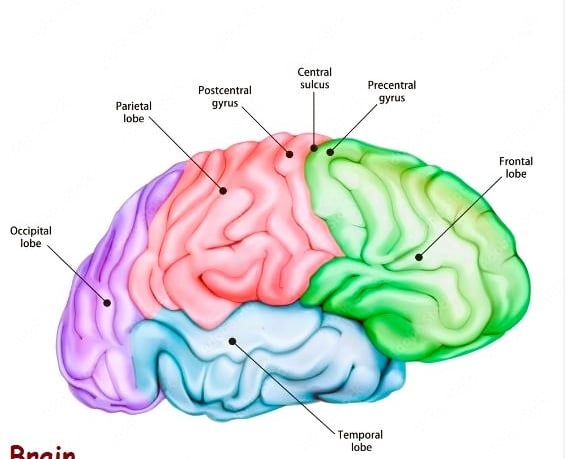Marvel of Nature: Exploring the Human Brain in Neuroscience
Delve into the intricacies of the human brain, a marvel of nature that defines who we are and how we interact with the world. Explore the latest research in neuroscience and psychology.


The human brain is a complex organ that serves as the center of the nervous system. It is responsible for controlling and coordinating all bodily functions, as well as processing and interpreting information from the senses. Made up of billions of neurons, the brain is divided into different regions, each with its own specific functions. The frontal lobe, for example, is associated with decision-making and problem-solving, while the temporal lobe is involved in memory and language. The brain constantly communicates with the rest of the body through a vast network of nerves, allowing us to move, think, feel, and perceive the world around us. Despite its remarkable capabilities, the brain is still a mystery in many aspects, and scientists continue to study and explore its intricacies.
Exploring the human brain is a fascinating topic that touches on various domains, including neuroscience, psychology, and even aspects related to education and research. Here are some key points about the human brain:
Structure: The human brain is a highly complex organ composed of approximately 86 billion neurons. It consists of different regions responsible for various functions. Some of the major regions include the frontal lobe (associated with reasoning and decision-making), temporal lobe (involved in memory and auditory processing), parietal lobe (responsible for sensory perception), and occipital lobe (associated with visual processing).
Functions: The brain is responsible for a wide range of functions, including cognitive processes like thinking, memory, and problem-solving, as well as controlling bodily functions such as movement, coordination, and regulating vital processes like breathing and heart rate.
Neurons: Neurons are the basic building blocks of the brain. They transmit electrical and chemical signals, allowing communication within the brain and with the rest of the body. Synapses are the junctions where neurons connect and transmit signals.
Consciousness: The brain is intimately linked with consciousness, which is a subject of ongoing research and debate in neuroscience and philosophy. Understanding how the brain generates consciousness is a complex and multifaceted question.
Plasticity: The brain exhibits neuroplasticity, which means it can reorganize itself in response to learning, experiences, or injuries. This ability allows for adaptation and recovery after certain types of damage.
Disorders and Diseases: There are various neurological disorders and diseases that affect the brain, such as Alzheimer's disease, Parkinson's disease, epilepsy, and many others. Researchers are continually working to understand these conditions better and develop treatments.
Education and Research: Understanding the human brain is crucial for educational purposes, particularly in fields like psychology and neuroscience. It also plays a significant role in technological advancements, such as the development of brain-computer interfaces.
Given your interest in research-oriented hobbies and your goal of educating about nature care and its benefits, you might find it interesting to explore how nature and the environment affect brain health and cognitive function. There's a growing body of research suggesting that spending time in nature has positive effects on the brain and overall well-being.
A healthy diet can indeed have a positive impact on brain function and cognitive performance. Here are some dietary recommendations for brain improvement:
Omega-3 Fatty Acids: Foods rich in omega-3 fatty acids, such as fatty fish (salmon, mackerel, sardines), flaxseeds, and walnuts, can support brain health. Omega-3s are essential for brain structure and function.
Antioxidants: Antioxidants help protect the brain from oxidative stress and inflammation. Berries (blueberries, strawberries), dark leafy greens (spinach, kale), and foods rich in vitamin C (oranges, peppers) are good sources of antioxidants.
Whole Grains: Complex carbohydrates from whole grains provide a steady supply of glucose to the brain, which is its primary energy source. Opt for whole wheat, brown rice, quinoa, and oats.
Lean Proteins: Protein-rich foods like lean meats, poultry, fish, tofu, and legumes provide amino acids necessary for the production of neurotransmitters, which are crucial for communication between brain cells.
Healthy Fats: Include sources of healthy fats in your diet, such as avocados, nuts, and olive oil. These fats support overall brain function.
Fruits and Vegetables: A diet rich in colorful fruits and vegetables provides essential vitamins, minerals, and antioxidants that support brain health. Aim for a variety of produce in your diet.
Turmeric: Curcumin, a compound found in turmeric, has anti-inflammatory and antioxidant properties that may benefit brain health. Consider adding turmeric to your meals or consuming it as a supplement.
Nuts and Seeds: Almonds, peanuts, and sunflower seeds are good sources of vitamin E, which is associated with cognitive health.
Coffee and Tea: Moderate consumption of coffee and tea, which contain caffeine and antioxidants, may have cognitive benefits and improve alertness.
Water: Staying well-hydrated is essential for proper brain function. Dehydration can impair cognitive performance.
Moderate Alcohol: If you consume alcohol, do so in moderation. Some studies suggest that moderate alcohol intake may have certain cognitive benefits. However, excessive alcohol can harm the brain.
Limit Processed Foods: Highly processed foods with added sugars and unhealthy fats can have a negative impact on cognitive function. Try to reduce your intake of these foods.
Hydration: Staying well-hydrated is crucial for maintaining cognitive function. Dehydration can lead to poor concentration and mental fatigue.
Portion Control: Overeating can lead to sluggishness and reduced mental alertness. Pay attention to portion sizes.
Remember that a balanced diet is not only important for brain health but also for overall well-being. Additionally, regular physical activity, getting enough sleep, managing stress, and staying mentally active through activities like reading, puzzles, and learning new skills are also essential components of maintaining and improving brain health.
